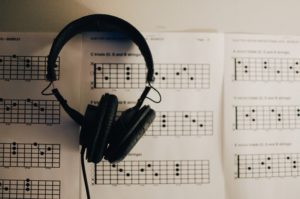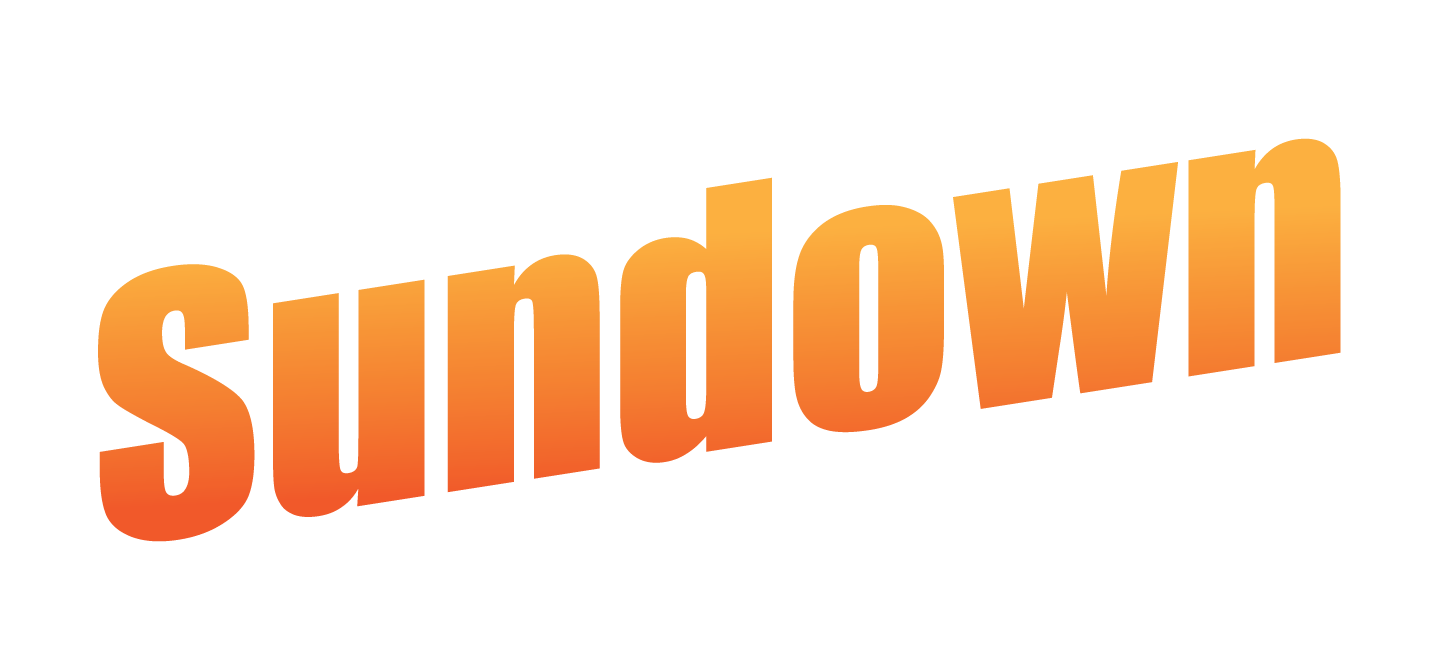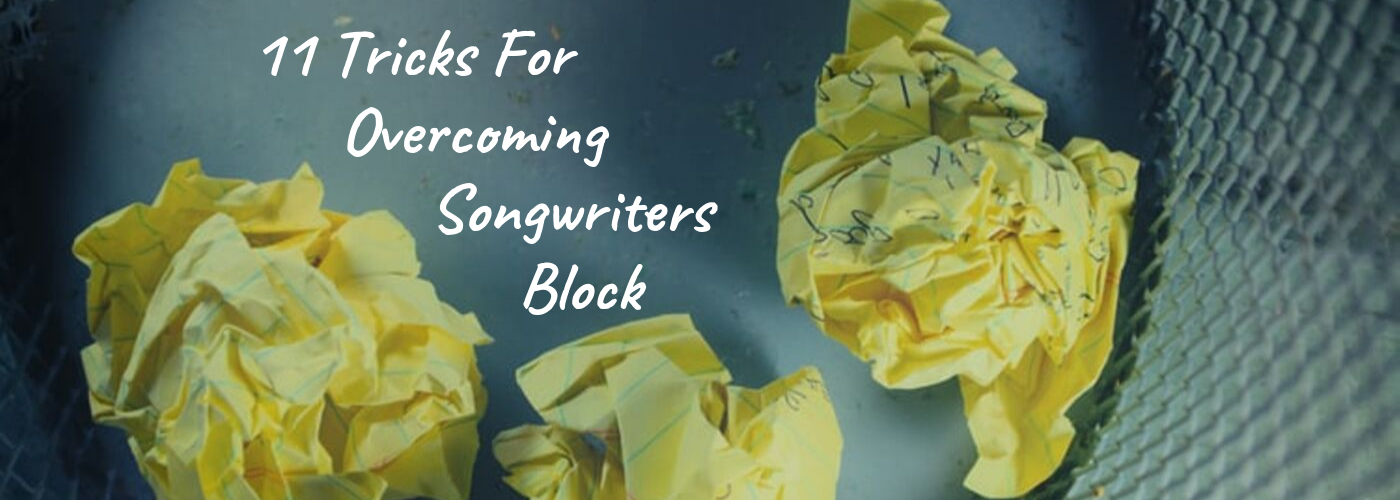Songwriter’s block is every artist’s worst enemy. It’s something that even the most creative individuals experience, yet it can still be super discouraging whenever it happens.
You may be on a roll with a song idea, when out of nowhere you hit a roadblock. For whatever reason your mind draws a blank and no matter how much you try you just can’t finish the song.
The video below is artist Dylan Laine’s interpretation of songwriters block and what she did to deal with it.
If you work in any creative field you probably found parts of that video quite relatable. She offers a great tip of looking outward for inspiration. However, even then some artists still struggle to finish a piece of music.
Although it may seem like you’ll never get out of a slump like this, there’s good news. Even the worst cases of songwriters block will eventually go away and there are some things you can do to help speed up the process.
Here are some of our top tips for overcoming songwriters block as quickly as possible. Find out which work for you and you’ll soon have your creative juices flowing again.
1. Take A Break
If you’ve been trying to finish a song for hours without any luck, chances are you’re overthinking it. The best thing you can do in this case is to simply take a break. There’s no point in forcing something that isn’t there.
Trust that the songwriters block will eventually end, put down the notebook and walk away from the music for a little while. If you do something else while letting the music percolate in the back of your mind you’ll come back with a fresh perspective.
Sometimes this means taking an hour off, other times it can be a couple days. Once you’ve given your creative brain a chance to recharge, you’ll often find that the solution to your writers block was something extremely obvious.
2. Finish The Song (Even If It’s Bad)
Not everybody’s creative brain works in the same way and for some people taking a break just doesn’t do the trick. In these cases, you may be able to overcome your songwriters block by working through it and finishing the song.
However, when going this route it’s important not to overthink things. Oftentimes the reason you’re stuck is because you’re worrying too much about what you’re putting on the page.
So, treat it like a rough draft and complete the song in full without stressing about the actual content. You’ll be surprised at what you’re able to write when you don’t censor yourself.
Once you’ve finished, you can work your way through it again and smooth things out with a better perspective.
3. Go For A Walk
If you’re primary songwriting space is inside and you’ve been at it awhile, this may be what’s causing the block. Taking some time to stretch your legs and let your mind wander really gets the creative juices flowing.
This could mean letting the song rest until you come back or bringing your notebook with you and jotting down ideas as they come to you. Either way, enjoying the outdoors is great for mental health, an important factor in proper songwriting.
4. Change Your Approach
A big reason songwriters get stuck is because they latch onto a specific concept and have trouble letting go. This could be a certain melody, rhyming scheme or even a line that doesn’t seem to fit with the rest of the song.
In these scenarios, as hard as it is, the solution is usually to come at things from a different angle. This could mean a complete rewrite with a fresh melody or simply scrapping the line that has you stuck and writing something else.
It’s hard to do but just because you’re laying one idea to rest doesn’t mean it’s bad. You can still come back to it down the road in another song.
5. Try A Different Instrument
If you know how to play multiple instruments, switching things up can be an excellent way to musically conquer your songwriters block. If you don’t know any other instrument, now may be the perfect time to learn.
Go out and rent something you haven’t played before, then Google some simple chords that you can quickly put to use. This is an awesome way to stretch your creative brain and often leads to musical ideas you’d never have thought of with your normal instrument.
6. Write Out What You’re Trying To Say
When you’re locked into a rhyming scheme and song structure it can get difficult to fully articulate what you’re trying to express with your music.
Try stepping away from the song itself for a moment and just write out what you want to say. Feel free to get specific and delve into the meaning behind each verse, chorus and bridge.
Once you’ve done this you’ll have a much clearer picture of what the song is about. Taking what you’ve written and putting it into song form may be much easier after the fact.
7. Learn Some New Chords
 Quite often songwriters block is the result of writing every song the same way and becoming creatively bored. If you find your hands going to the same chords every time you sit down to write something, it’s probably time to expand your musical knowledge.
Quite often songwriters block is the result of writing every song the same way and becoming creatively bored. If you find your hands going to the same chords every time you sit down to write something, it’s probably time to expand your musical knowledge.
Once again, this is a great time to jump on Google or YouTube and learn something new. Beyond just new chords, researching new scales is an excellent way to improve your approach to melodies.
You’ll soon find your creative energy back in gear, in a new direction, with fresh musical perspective.
8. Break Out A Rhyming Dictionary or Thesaurus
If you’re stuck on a word that you just can’t find a rhyme for, don’t be afraid to use a rhyming dictionary to break this type of songwriters block.
RhymeZone is an awesome tool that goes beyond finding rhymes. It also allows the user to search for near rhymes, phrases, synonyms and more.
The great thing about looking up synonyms is that it can help you find a new way of saying what you want. Once you do everything else in your rhyming scheme may fall into place a lot easier.
9. Listen To New Music
Creativity is something that needs to be fuelled and a great way to do this is by discovering new music. Jump on Spotify or Apple Music and check out some suggested playlists or maybe a genre you don’t usually listen too.
If a particular artist really catches your ear, delve a little deeper and check out their other music. You’ll probably learn a thing or two from their style and be able to apply it to your own writing.
10. Read a Book or Watch a Movie
Songwriting is just a form of storytelling. So, a great way to end your block may be to take in another type of story.
Spending some time reading or checking out some new movies can have a couple benefits. First, it gives your mind a break and lets it focus on something else for awhile.
Second, if you’re at a loss for something to write about, you may find a character or plot that inspires you.
11. Co-Write
Having someone else to bounce ideas off is one of the best ways to end songwriters block. Everyone writes in their own way, so working with another person always brings a new perspective to your music.
If you’re the type who has a hard time letting others make changes to ideas that are close to your heart, co-writing might still be for you. In this case, bring some ideas that you’re less passionate about to the songwriting session or start on a new song altogether.
Once you get your creative energy flowing with another songwriter, you’ll often overcome whatever had you blocked in other songs as well.
Conclusion: How To Overcome Songwriters Block
When trying to cure songwriters block there’s two major approaches you can take. You can either step away for a little or push through the slump.
If you decide to take a bit of a break try going for a walk, watch a movie or listen to some new music. On the other hand, if you aren’t in the mood to step away from things, finish the song but don’t worry about it being perfect.
Writing out what you’re trying to say, learning a new instrument or chords and looking through a rhyming dictionary are all great ways to change your approach when stumped.
Finally, consider finding another artist to co-write with and bounce ideas off of each other until you’re creative drive comes back.
With patience and persistence you’ll eventually learn what works best for you. Once you do you’ll be able to overcome songwriters block very quickly whenever it hits.
If you liked the tips in this guide be sure to check out the rest of the Sundown Sessions Studio Blog for more guides on songwriting and home recording.











